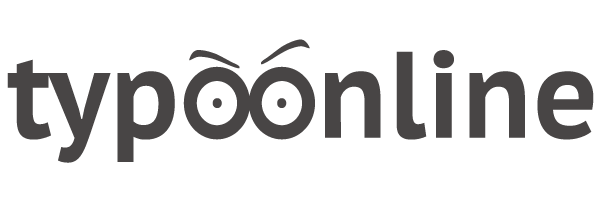Smart Test Strategies in Basic Learning CPNS in the Era of Society 5.0
Abstract
An important point in community 5.0 is cross-section based on knowledge and information, thus encouraging people to be able to continue to grow and develop into active community people. The concept in society 5.0, has begun to develop in the culture of Indonesian society. There are several important indicators, including public awareness to use IT as an "enabler" in supporting work activities. This paper will provide a general description of one of the learning methods that support the realization of a culture of society 5.0 to improve the competence of training participants, through empirical studies with survey data on the CPNS Latsar Training Ministry of Finance. Based on the results of descriptive analysis, a general description is obtained that through the development of learning methods that are appropriate to the culture of society 5.0, learning objectives such as increasing the competency of participants are more easily achieved. The reason is because, the development of learning methods, in this paper uses Quizizz, according to the needs and culture of the participants which is basically 100% millennial generation. This can be concluded, that with the culture of society that has begun to shift to sociality 5.0, the government needs to innovate or breakthrough according to community needs to be more effective and efficient.
Downloads
References
Arends, R. I. (2013). Belajar Untuk Mengajar (9 ed.). Jakarta: Salemba Empat.
Balasubramanian, K. (2017). Moving towards borderless and limitless classroom: Blending Skype, Nearpod and Quizizz applications in the teaching and learning. Proceedings Of The International University Carnival On E-Learning (Iucel) 2017 (hal. 93). Bandar Baru Nilai: Centre for Global Open Access Learning. Diambil kembali dari http://creativecommons.org/licences/by-sa/4.0
BAPPENAS. (2019). Rancangan Teknokratik Rencana Pembangunan Jangka Menengah Nasional 2020-2024. Jakarta: BAPPENAS.
BPS. (2017, November 20). BPS. Dipetik Agustus 25, 2018, dari https://www.bps.go.id/statictable/2014/09/12/1176/jumlah-pegawai-negeri-sipil-menurut-kelompok-umur-dan-jenis-kelamin--desember-2007-dan-desember-2016.html
Creswell, J. (2015). Riset Pendidikan, Perencanaan, Pelaksanaan, dan EValuasi Riset Kualitatif & Kuantitatif (kelima ed.). Jakarta: Pustaka Pelajar.
Eser Çeker, F. Ö. (2017). What “Gamification” is and what it’s not. European Journal of Contemporary Education, 6(2), 221. Diambil kembali dari https://eric.ed.gov/?id=EJ1146137
Faruqi, U. A. (2019). Survey Paper: Future Service in Industry 5.0. Jurnal Sistem Cerdas, 2(1), 67-79. doi:https://doi.org/10.2505/jsc.v2i1.21
Ferreira, C. M., & Serpa, S. (2018). Society 5.0 and Social Development. Management and Organizational Studies(5), 26-31. doi:10.5430/mos.v5n4p26
Fukuda, K. (2019). Science, technology and innovation ecosystem transformation toward society 5.0. International Journal of Production Economics.
Hadiyanto. (2017, Desember 20). kemenkeu. (kemenkeu) Dipetik Agustus 25, 2018, dari https://www.kemenkeu.go.id/publikasi/berita/cpns-kemenkeu-diharapkan-dapat-mewujudkan-visi-kemenkeu/
Huisman, M. (2018, May). Formative Assessment and the Impact on Student Learning. Dipetik Agustus 19, 2018, dari https://nwcommons.nwciowa.edu/education_masters/86/
Iswan, & Herwina. (2018). PENGUATAN PENDIDIKAN KARAKTER PERSPEKTIF ISLAM DALAM ERA MILLENIAL IR. 4.0. Seminar Nasional Pendidikan Era Revolusi “Membangun Sinergitas dalam Penguatan Pendidikan Karakter pada Era IR 4.0” (hal. 21- 42). Jakarta: Universitas Muhammadiyah Jakarta.
Jamro, M. (2017). Engaging students of Engineering & Technology in positive Group Dynamics using randomly generated Instant Virtual Group (IVG) quizzes. International Journal for Innovation Education and Research , 5(10), 10-43. Diambil kembali dari http://ijier.net/ijier/article/view/797
Mashoedah. (2015, November). Kajian Penggunaan Media Pembelajaran dalam Pelatihan Peningkatan Kompetensi Profesional Guru. Jurnal Electronics, Informatics, and Vocational Education, 1(1), 17-25.
Mertler, A. (2011). Action Research Mengembangkan Sekolah Memberdayakan Guru. Yogyakarta: Pustaka Pelajar.
Moleong, L. J. (2015). Metodologi Penelitian Kualitatif. Bandung: Remaja Rosdakarya.
Mujiman, H. (2007). Manajemen Pelatihan Berbasis Belajar Mandiri. Yogyakarta: Pustaka Pelajar.
Nata, A. (2009). Perspektif Islam Tentang Strategi Pembelajaran. Jakarta: Kencana.
Prima, E. (2019, Januari 29 ). Tempo. Diambil kembali dari Tempo.co: https://tekno.tempo.co/read/1170120/mengenal-visi-jepang-society-5-0-integrasi-ruang-maya-dan-fisik/full&view=ok
Puspitasari, D. (2019, Februari 27). dewipuspasari. Diambil kembali dari dewipuspasari.net: https://dewipuspasari.net/2019/02/27/revolusi-industri-5-0-yang-humanis/
Puspitasari, S. S. (2018). Preferansi Struktur Organiasi Bagi Generasi Millennial. Jurnal Borneo Administrator, Vol 14 (2), 101-118. Diambil kembali dari http://samarinda.lan.go.id/jba/index.php/jba/article/view/336
quizizz. (2019, Oktober 20). quizizz. Dipetik Agustus 15, 2018, dari https://cf.quizizz.com/static/getting-started.pdf
quizizz. (2019, Oktober 20). quizizz. Dipetik Agustus 15, 2018, dari https://quizizz.com/resources
Salgues, B. (2018). Society 5.0 Industry of the Future, Technologies, Methods and Tools. London: Wiley.
Sugiyono. (2015). Metode Penelitian Pendidikan. Bandung: Alfabeta.
Suo Yan mei, S. Y. (2018). Implementing Quizizz as Game Based Learning in the Arabic Classroom. European Journal of Social Sciences Education and Research , 12(1), 208. Diambil kembali dari https://econpapers.repec.org/RePEc:eur:ejserj:483
Wahyudi Kumorotomo, N. R. (2015). Manajemen ASN. Jakarta: LAN.
Wanda, P. (2017, Desember 12). student.cnnindonesia. Dipetik Agustus 25, 2018, dari https://student.cnnindonesia.com/edukasi/20171219114411-445-263408/pendidikan-dan-digitalisasi-di-era-milenial/
Wibawanto, H. (2016). Generasi Z dan Pembelajaran di Pendidikan Tinggi. Simposium Nasional: Mengenal dan memahami Generasi Z. Haruskah Pendidikan Tinggi Berubah? (hal. 1-10). Bogor: UPT Elearning Institut Teknologi Bandung. Dipetik Oktober 20, 2019, dari https://eportfolio4hariwibawanto.files.wordpress.com/2018/11/pembelajaran-bagi-generasi-z.pdf
Copyright (c) 2020 PANCANAKA Jurnal Kependudukan, Keluarga, dan Sumber Daya Manusia

This work is licensed under a Creative Commons Attribution 4.0 International License.
1. Authors retain copyright and grant the journal right of first publication with the work simultaneously licensed under a Creative Commons Attribution License that allows others to share the work with an acknowledgement of the work's authorship and initial publication in this journal.
2. Authors are able to enter into separate, additional contractual arrangements for the non-exclusive distribution of the journal's published version of the work (e.g., post it to an institutional repository or publish it in a book), with an acknowledgement of its initial publication in this journal.
3. Authors are permitted and encouraged to post their work online (e.g., in institutional repositories or on their website) prior to and during the submission process, as it can lead to productive exchanges, as well as earlier and greater citation of published work (See The Effect of Open Access).










_-_Logo_CLR.png)






